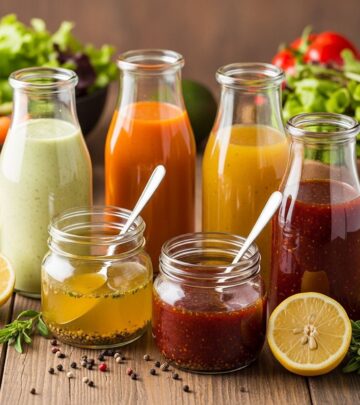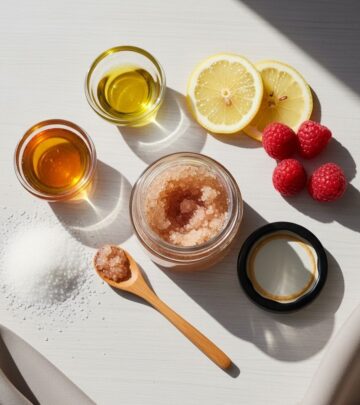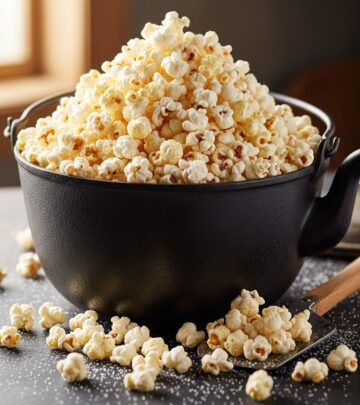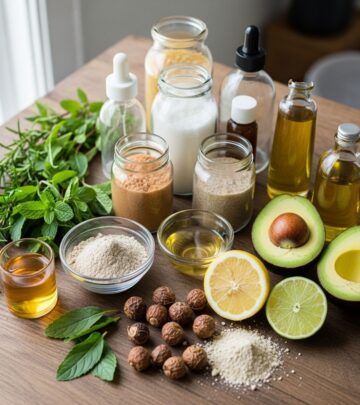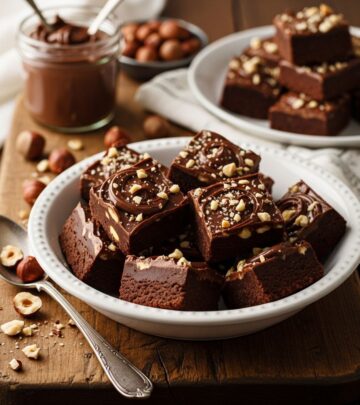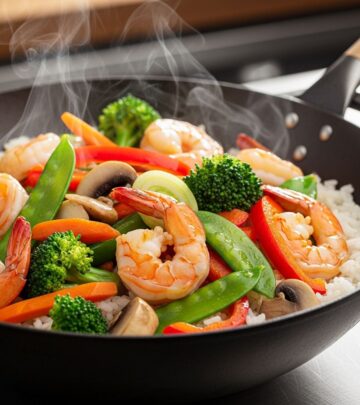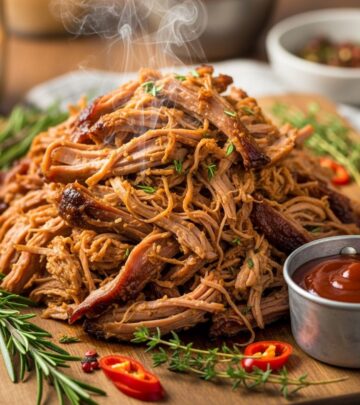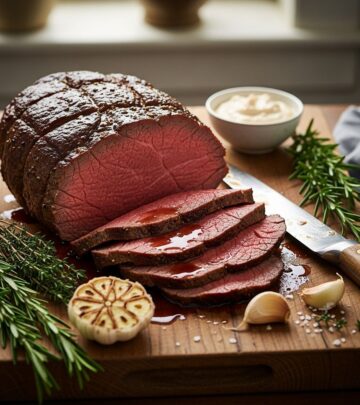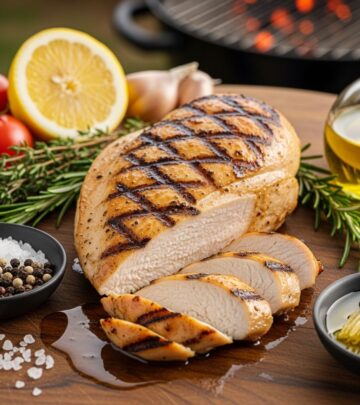Guava and Cream Cheese Pastelitos: The Cuban Bakery Classic at Home
Flaky layers meet sweet and tangy filling for a taste of island warmth in every bite.
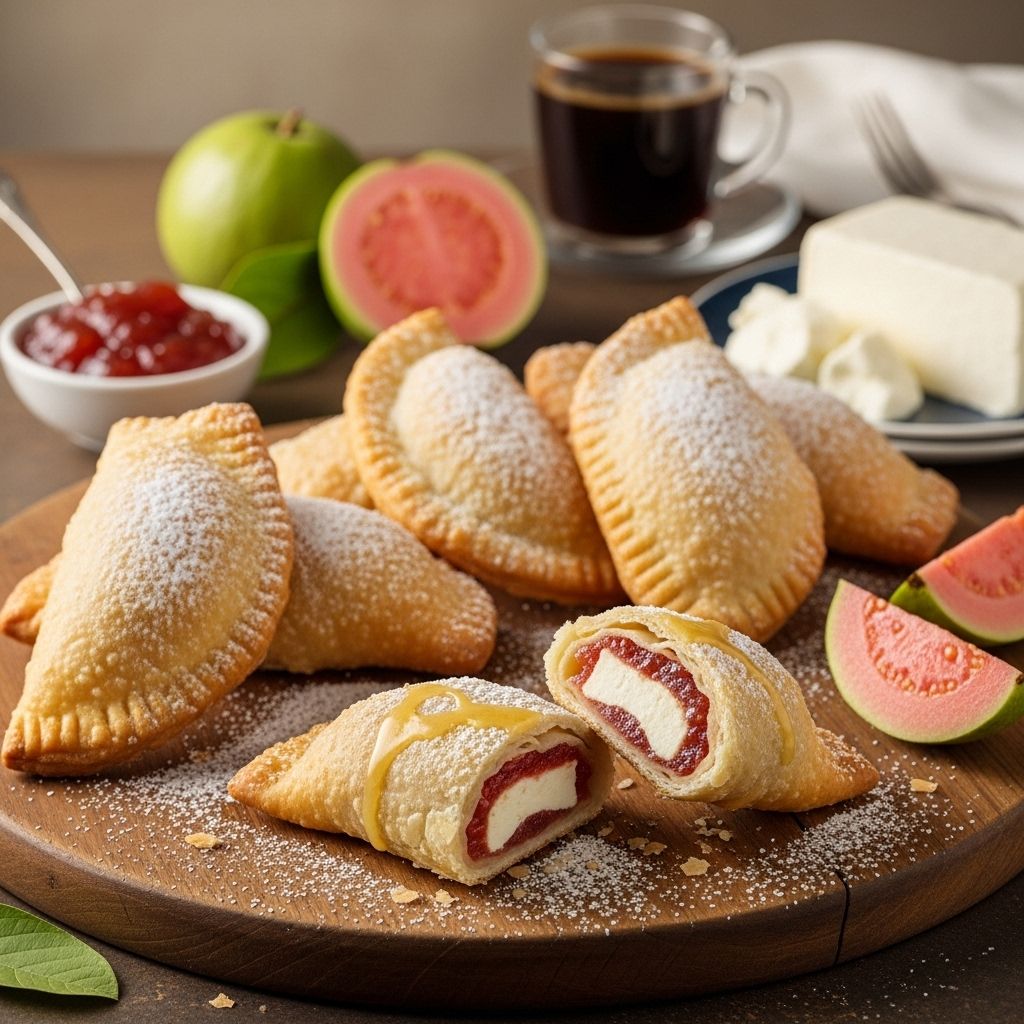
Every Cuban bakery glows with the golden promise of Pastelitos de Guayaba y Queso — flaky puff pastry, tangy-sweet guava, and luscious cream cheese. These iconic pastries are easy to bake at home, even if you’re nowhere near Miami, thanks to a handful of ingredients and simple techniques. This guide walks you through everything you need to know, from essential ingredients and handling tips to serving traditions and creative variations.
Table of Contents
- What Are Pastelitos de Guayaba y Queso?
- Flavor and Cultural History
- Key Ingredients & Why They Matter
- How To Make Guava and Cream Cheese Pastelitos
- Step-By-Step Assembly Guide
- Baker’s Tips and Troubleshooting
- Serving Ideas and Pairings
- Variations and Customization
- Nutrition and Quick Facts
- Frequently Asked Questions (FAQs)
What Are Pastelitos de Guayaba y Queso?
Pastelitos de Guayaba y Queso are Cuban-style pastries featuring layers of buttery, flaky puff pastry filled with sweet guava paste and creamy cheese. Their irresistible flavor and contrasting textures have made them a breakfast staple and celebratory treat across South Florida and Latin American communities. Crisp on the outside and molten within, they are simple to make at home with store-bought ingredients.
Flavor and Cultural History
The marriage of tangy guava and rich cream cheese is the heart of this iconic pastry. Guava, native to the Caribbean and Latin America, provides an intense floral sweetness and vibrant pink color. Paired with cream cheese — a legacy of New World dairy traditions — the combination became a staple of Cuban bakeries in Miami and beyond.
- These pastries are often enjoyed for breakfast, as a sweet snack, or as a treat alongside Cuban coffee.
- The word “pastelito” simply means “little cake” in Spanish, but these treats are more closely related to turnovers or Danish pastries in their construction.
Key Ingredients & Why They Matter
| Ingredient | Purpose & Tips |
|---|---|
| Puff Pastry Sheets | Creates dozens of flaky layers. Use all-butter pastry for best flavor, or keep it convenient with store-bought frozen sheets. Thaw before rolling. |
| Guava Paste | Smooth, sweet, and concentrated. Comes in dense blocks found in Latin or grocery stores. Warm slightly to soften for easier spreading. Substitute: Guava jam or preserves (for a looser filling). |
| Cream Cheese | Plain, full-fat cream cheese provides rich tang and balances the sweetness. Should be at room temperature for smoothest blending. |
| Egg | Used for egg wash, giving the tops a glossy, golden appearance and crisp finish. |
| Coarse Sugar | Demerara or turbinado sugar adds a crunchy, caramelized top. Optional but highly recommended. |
Equipment You’ll Need
- Baking sheet
- Parchment paper
- Small bowls
- Fork or pastry brush
- Rolling pin (optional)
- Sharp knife or pizza cutter
How To Make Guava and Cream Cheese Pastelitos
This pastry is all about assembly and baking. Here’s a master method to guide you from prep to golden perfection.
Classic Guava and Cream Cheese Pastelito Recipe
- Yield: 9-18 pastries (depending on size)
- Prep Time: 15 minutes
- Cook Time: 20 minutes
- Total Time: 35 minutes
Ingredients
- 2 sheets puff pastry (about 17 ounces; thawed if frozen)
- 8–10 ounces guava paste (or jam/preserves)
- 8 ounces cream cheese, at room temperature
- 1 large egg
- 1 tablespoon water
- 1/4 cup coarse sugar (demerara or turbinado), for topping
Step-By-Step Assembly Guide
- Preheat Oven: Heat your oven to 400°F (200°C). Line a baking sheet with parchment paper.
- Soften the Filling: If using guava paste, cut into chunks and microwave in 20-second bursts until spreadable but not runny. Stir until smooth.
- Prepare the Cream Cheese: Beat cream cheese in a small bowl until soft and creamy. For extra tang, add a squeeze of lemon juice or a tablespoon of sugar to taste.
- Cut the Pastry: On a lightly floured surface, roll pastry into a large square. Cut into 9 even squares per sheet (or smaller for bite-sized pastries).
- Add Fillings: Place a spoonful of cream cheese in the center of each square, then top with a scoop of guava paste. Do not overfill, to prevent leaking.
- Shape and Seal: Brush the pastry borders with egg wash (egg mixed with 1 tablespoon water). Fold into triangles or rectangles. Press edges with a fork to seal well.
- Vent and Glaze: Use a sharp knife to cut 2–3 small slits in the top of each pastry for steam to escape. Brush tops with additional egg wash and sprinkle coarse sugar generously.
- Bake: Bake for 10 minutes, rotate the pan, and bake another 8–10 minutes until puffed and deeply golden brown.
- Cool and Serve: Let cool for at least 10 minutes before eating — the filling will be piping hot!
Quick Tips for Success
- Puff pastry works best when cold, but not frozen — keep chilled until assembling.
- Don’t overstuff; a tablespoon of each filling is usually enough for standard squares.
- Press forks down firmly to seal, especially if using a looser jam.
- Three quick slits prevent bursting and let pastry expand evenly.
- Resting after baking makes them easier to eat and helps fillings set slightly.
Baker’s Tips and Troubleshooting
- If using homemade pastry, ensure it’s rolled to about 1/8-inch thickness for flakiest results.
- Experiment with guava jam or fruit preserves if you prefer a more gooey, less dense filling.
- If pastries open during baking, check that the edges are clean before sealing and that the egg wash is applied to all sides.
- Puff pastry should always be cold when it goes into the oven for maximum rise and crispness.
Serving Ideas and Pairings
- Serve while warm, with filling just set and pastry shattering with every bite.
- Traditionally enjoyed with strong Cuban coffee (cafecito) or espresso.
- Slice into small triangles for a brunch platter or dessert tray.
- Dust lightly with powdered sugar for extra flair.
Variations and Customization
Once you’ve mastered the classic, consider these playful twists:
- Cheese only: Omit guava for a pure cream cheese filling, like a Danish.
- Tropical fruits: Swap in mango, pineapple, or passionfruit preserves for a regional twist.
- Mixed berries: Pair berries and cheese for a summery flavor.
- Mini pastelitos: Cut smaller squares for cocktail parties or snacks.
- Extra tang: Add a pinch of lemon zest or a drop of vanilla to the cheese.
Nutrition and Quick Facts
| Per Pastry (Estimate) | Amount |
|---|---|
| Calories | ~188 |
| Carbohydrates | 20g |
| Cholesterol | 10mg |
| Sodium | 140mg |
| Calcium | 20mg |
| Iron | 0.2mg |
Note: Nutrition information is approximate and varies by brand and quantity of ingredients used. Enjoy as an occasional treat!
Frequently Asked Questions (FAQs)
Can I use guava jelly instead of guava paste?
Yes, guava jelly or jam can be used for a softer, gooier filling. It may spread more during baking, so seal the pastry well and use a slightly smaller amount per piece.
Do these freeze well?
Unbaked pastelitos can be assembled and frozen on a tray, then transferred to a bag or container. Bake from frozen, adding a few extra minutes to the bake time.
Can I make them ahead?
They are best fresh and warm, but leftover pastelitos can be stored in an airtight container for up to 2 days and reheated in a toaster oven for crispness.
Is there a vegan version?
Use vegan puff pastry and substitute non-dairy cream cheese. Guava paste is typically vegan, but check labels to be sure.
Where can I buy guava paste?
Guava paste is stocked in the Hispanic/Latinx section of many supermarkets, as well as online. Popular brands include Goya, Conchita, and Iberia.
Related Recipes & Inspiration
- Tropical Guava Tangerine Fizz cocktail
- Guava Cheesecake
- Guava Limeade Summer Mocktail
- Crispy Pancetta Guava Grilled Cheese
- Homemade Guava Jam
Final Tips: The Soul of Cuban Baking in Your Kitchen
No matter where you live, baking Pastelitos de Guayaba y Queso is about channeling the warmth of Cuban hospitality: simple ingredients, generous flavor, big smiles. Let the aroma of buttery pastry and fragrant guava fill your kitchen and celebrate the sweet joys of sharing food with friends and family.
References
Read full bio of Sneha Tete

